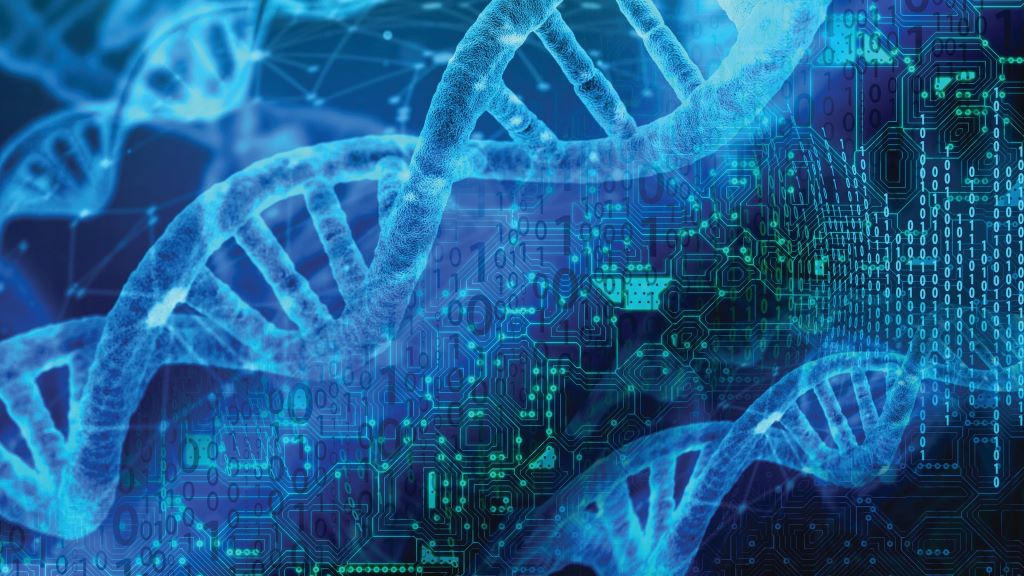ACC Cyfronet AGH takes part in many initiatives and undertakings, as part of which it provides the HPC computing infrastructure along with the resources of data storage systems for the needs of research. Cyfronet also plays a large role in the development of new computational methods, algorithms, models and technologies for various fields of science. An important element of the activities undertaken by Cyfronet are also Laboratories, where modern IT tools are created to support research and the preparation of scientific results.
Laboratories
Table of content
Laboratory of Cloud Technologies

The laboratory deals with the design and operation of the cloud for science, as well as tools for its effective use. The team is developing comprehensive environments for access to distributed data, taking into account both the issues of secure data storage and processing in the cloud, as well as convenient access interfaces (portals, applications) for the end user.
Bearing in mind the dynamic development of new technologies for processing and storing data in the cloud, the Laboratory constantly conducts research and publishes the results. Using the team's expert knowledge, it actively supports scientific initiatives, including international projects and e-infrastructures.
The flagship product of the Laboratory is Onedata: a globally scalable data management system, unifying access to data stored in distributed systems. Onedata responds equally well to the needs of both small user groups and large international research communities. The system enables users to use a homogeneous data management system for both personal and work-related data storage, such as research results, and enables accessing it efficiently from any device.
More information at: https://onedata.org.
Contact: Łukasz Dutka, lukasz.dutka (at) cyfronet.pl
Laboratory of Data Processing

The laboratory designs and implements dedicated applications and software platforms for applications in various fields of science. The laboratory consists of specialists in the field of software architectures, Front-end and Back-end programming, user interface and user experience design, DevOps, testing, and requirements analytics. The team specializes mainly in:
- development of innovative methods of acquiring knowledge from available data,
- development of technologies supporting open data processing,
- integration of data and knowledge processing systems with existing repositories and e-infrastructures.
The laboratory establishes cooperation with renowned scientific and research units as part of Polish and international projects. The effects of cooperation include:
-
Construction of the Sat4Envi Portal, providing satellite data from the Copernicus program. The portal enables searching, viewing, ordering and downloading satellite data and their derivative products using only a web browser.
-
Development and maintenance of the EOSC Portal as part of a series of projects related to the European Open Science Cloud (EOSC). The portal provides access to the resources of many European e-infrastructures and research infrastructures through a unified user authentication system. EOSC activities focus on the implementation of the Open Science paradigm.
Contact: Roksana Wilk, roksana.wilk (at) cyfronet.pl
Laboratory of Interdisciplinary Scientific Computing

The Laboratory conducts research and development work on the processes of conducting and supporting scientific calculations and the organization of scientific data. The Science Gateways portals elaborated by the Laboratory employees create the possibility of establishing cooperation with external entities: Polish and foreign.
The Laboratory tasks are also focused on:
- implementation of research grants and industrial orders,
- using expert knowledge to solve problems requiring the use of various computing resources, e.g. machine learning technology,
- popularization of calculations using the tools created by the Laboratory among users,
- essential support for users, realized among others by monitoring needs, developing documentation, and conducting training.
The team of the Laboratory, previously co-creating the Laboratory of Data Processing, developed the proprietary InSilicoLab programming environment, which includes a set of advanced tools and programming libraries that allow for the construction and development of dedicated research portals. Portals based on InSilicoLab are designed in such a way as to gather in one place all the tools that researchers need for in silico calculations. The main advantages are:
- easy running of the user experiments, even if they are complex, long and require many calculations,
- the ability to conveniently describe, categorize and search for input or output data.
The InSilicoLab technology is distinguished by striving for the greatest possible usability of the tools built with the help of the environment. This sphere includes both the usefulness for solving scientific problems in a given field, as well as the user-friendliness of the portal for its end-user.
The effects of the Laboratory team cooperation with renowned scientific and research units as part of Polish and international projects include the development of the EPISODES Platform as part of a series of projects related to the European Plate Observing System - EPOS. The portal and the tools organized around it are focused on the study and analysis of seismicity and other phenomena caused by human activity (e.g. exploitation of resources within a mine, creation of artificial water reservoirs). The portal is integrated with the European EPOS infrastructure.
Contact: Joanna Kocot, joanna.kocot (at) cyfronet.pl
Laboratory of Quantum Computing

The laboratory was established to conduct research on the use of quantum computers in calculations and to support classical calculations with quantum accelerators.
One of the key tasks is to follow the development of quantum computing technologies and available quantum accelerator platforms in order to use them in dedicated services offered by Cyfronet. We cooperate with other research entities and industrial partners, both as consortium members of joint initiatives and carrying out commissioned works.
Based on our own competences and the exchange of expert knowledge with a network of partners, our team is working on solving the problems that prevent us from wider and more effective using the quantum accelerators in calculations for the benefit of science and economy.
We also act to popularise calculations using quantum accelerators and provide substantive user support. In this regard, we prepare the necessary documentation and materials, conduct training and publish the results of research work.
Contact: Mariusz Sterzel, mariusz.sterzel (at) cyfronet.pl
Laboratory of Information Methods in Medicine

The main tasks of the Laboratory focus on two spheres. The first is research activity, which includes a thorough analysis and verification of available and potential answers to the challenges found at the border of medicine and information technology. The second one covers the design, development and subsequent operation of dedicated applications and platforms for medical applications. This scope also covers the monitoring of the security status of the developed software as well as data storage and processing mechanisms.
Thanks to the comprehensive approach to the processes: from the identification of the research problem, through the analysis of users' needs, to the final implementation, the Laboratory effectively implements its mission to support the scientific and medical community. As part of the dissemination of expert knowledge, members of the Team publish research results in scientific journals, participate in the preparation of information materials and conduct consultations for users.
Laboratory employees establish cooperation with renowned domestic and foreign research institutes and medical IT centers. The effects of this cooperation are, among others, ongoing and already implemented projects with significant participation of Team members:
- Sano: Centre for New Methods in Computational Diagnostics and Personalised Therapy,
- PRIMAGE: PRedictive In-silico Multiscale Analytics to support cancer personalized diaGnosis and prognosis, Empowered by imaging biomarkers,
- Virolab: A Virtual Laboratory for Decision Support in Viral Disease Treatment,
- Gliomed: Diagnostics of gliomas based on the slowly circulating DNA of the tumor,
- Eurvalve: Personalised Decision Support for Heart Valve Disease,
- CECM: A Centre for New Methods in Computational Diagnostics and Personalised Therapy.
The previous activity of the current Laboratory team is presented in detail on the following website: https://dice.cyfronet.pl.
Contact: Marian Bubak, marian.bubak (at) cyfronet.pl
